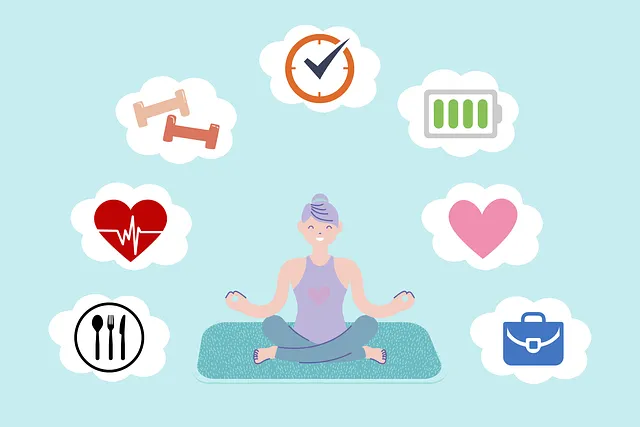Mental wellness group facilitation is a specialized skill crucial at Longmont Kaiser Permanente mental health locations, where facilitators guide small groups through evidence-based practices and mutual support. Using strategies like Crisis Intervention Guidance and Public Awareness Campaigns Development, they create nurturing spaces for open dialogue, coping mechanisms, and enhanced mental well-being. Effective facilitation involves tailored approaches, active listening, interactive activities, stigma reduction efforts, and regular risk management planning. These collaborative approaches improve mental wellness in the community by offering a safe space for connection, experience sharing, and practical tools.
Mental wellness group facilitation plays a vital role in supporting individuals at Longmont Kaiser Permanente mental health locations. This article explores effective techniques for leading supportive group sessions, focusing on strategies proven to enhance mental well-being. We delve into understanding the unique dynamics of these groups and highlight the benefits and challenges faced by facilitators. By examining these aspects, we aim to empower facilitators in creating safe, inclusive environments that foster healing and connection among participants at Longmont Kaiser Permanente.
- Understanding Mental Wellness Group Facilitation
- Strategies for Effective Group Sessions at Longmont Kaiser Permanente Locations
- Benefits and Challenges of Facilitating Mental Health Support Groups
Understanding Mental Wellness Group Facilitation

Mental wellness group facilitation is a specialized skill set that plays a pivotal role in supporting individuals navigating mental health challenges. It involves expertly guiding and facilitating small groups, fostering an environment where participants can share experiences, gain insights, and offer mutual support. This approach leverages the power of collective healing, enabling individuals to connect with peers facing similar struggles.
At Longmont Kaiser Permanente mental health locations, facilitators employ various techniques drawn from evidence-based practices. These include Crisis Intervention Guidance, which equips facilitators with strategies to handle acute distress, and Public Awareness Campaigns Development, aimed at enhancing community understanding of mental wellness. A comprehensive Risk Assessment for Mental Health Professionals is also crucial in ensuring safe and effective group settings. Through these methods, facilitators create a nurturing space that encourages open dialogue, promotes coping mechanisms, and empowers individuals towards improved mental well-being.
Strategies for Effective Group Sessions at Longmont Kaiser Permanente Locations

At Longmont Kaiser Permanente mental health locations, effective group session facilitation is paramount to fostering a supportive and therapeutic environment. To ensure engaging and impactful gatherings, facilitators should employ diverse strategies tailored to the specific needs of each group. Active listening and open communication are foundational; allowing members to share their experiences and perspectives creates a sense of belonging and mutual understanding. Incorporating interactive activities, such as role-playing scenarios or guided meditations, can enhance participation and promote anxiety relief among participants.
Additionally, addressing mental illness stigma reduction efforts is crucial within these sessions. Facilitators can cultivate an inclusive atmosphere by encouraging empathy and promoting education around mental health conditions. Regularly reviewing risk management planning for mental health professionals ensures the safety and well-being of both facilitators and group members, fostering a secure space for vulnerable discussions. These collaborative approaches not only enhance the overall effectiveness of group sessions but also contribute to the broader goal of improving mental wellness in the community.
Benefits and Challenges of Facilitating Mental Health Support Groups

Facilitating mental health support groups offers a unique opportunity for individuals to connect, share experiences, and gain valuable insights from one another. The benefits are multifaceted; participants can find comfort in knowing they’re not alone, develop effective communication strategies, and gain practical tools for managing their mental wellness. These group settings encourage open dialogue, foster a sense of community, and provide a safe space for expressing emotions and challenges related to anxiety, depression, or other common mental health concerns. Longmont Kaiser Permanente mental health locations have recognized the power of these support groups in promoting holistic healing and well-being.
However, facilitating such groups also presents several challenges. Group dynamics can be complex, requiring skilled facilitators who can navigate sensitive topics while ensuring every member feels heard. Maintaining a balanced environment where everyone contributes is essential for effective group therapy. Additionally, balancing the needs of individuals with varying mental health conditions and levels of recovery can be demanding. Facilitators must adapt their approach to include engaging activities, such as Mental Wellness Journaling Exercises, to cater to diverse learning styles and promote Anxiety Relief among participants.
Mental wellness group facilitation plays a vital role in supporting individuals at Longmont Kaiser Permanente mental health locations. By employing strategies such as active listening, structured agendas, and inclusive environments, facilitators can enhance the benefits of group sessions. While challenges like managing diverse needs and maintaining confidentiality exist, the rewards of fostering connections and promoting healing within these groups are indelible. Through ongoing education and adaptation, facilitators can ensure these support groups remain a game-changer in navigating mental health journeys.



